
The science fiction genre has always flourished throughout the history of cinema, capturing the imagination and commanding impressive box office receipts along the way. But not all great SF has been widely seen, become a large-scale franchise, or been a big “event film” with A-list stars. Some get released and lost in the shuffle or are forgotten over the passage of time.
Great speculative fiction is often found in small scale indie film attire and art house dress or sometimes lost as the cult of admirers dwindled or get into something else.
The following list guarantees an adventurous path of imagined futures, possible pasts, artificial intelligence, virtual reality, stinging satire and much more. Enjoy!
10. Aniara (2019)
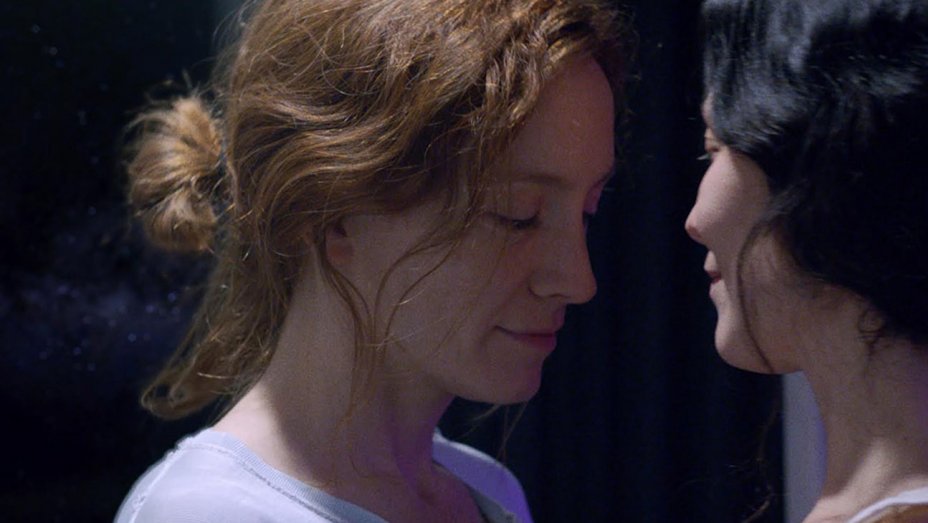
Adapted from Swedish writer Harry Martinson’s epic 1956 poem, directors Pella Kågerman and Hugo Lilja offer one of the year’s most visionary and melancholic sci-fi films with Aniara.
Comparisons to Douglas Trumbull’s 1972 environmental-themed post-apocalyptic SF film Silent Running and William Golding’s 1954 dystopian literary classic “Lord of the Flies” are apt in this daunting and ambitious achievement.
Mimaroben (Emelie Jonsson) is part of a group of pilgrims leaving our dying earth for the Mars frontier when their ark-like spacecraft is knocked off course and left paralyzed without fuel. Slowly coming to terms with their forlorn lot, the passengers start to explore extreme means of coping, such as spending unhealthy amounts of time in virtual realms and joining cults that partake in depraved rituals. As fanaticism, hedonism, and cruel totalitarianism take over, Mimaroben fights to retain a sense of prevalence, even attempting to start a family and find love.
Audaciously spanning some 5,981,407 years, Aniara proves to be that rare thing that serious sci-fi aspires to be: both deeply philosophical and utterly fantastical.
9. TerrorVision (1986)
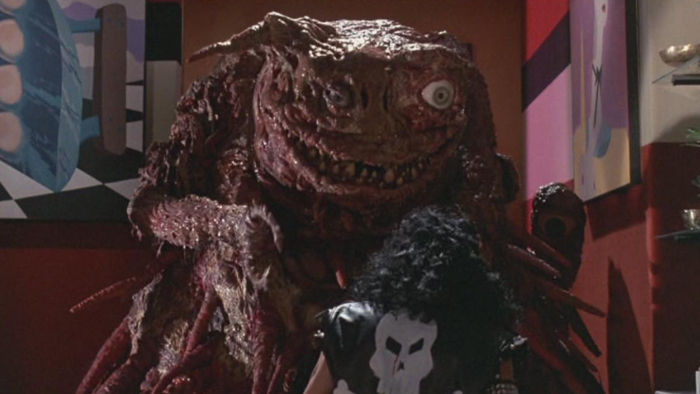
“Intellectual decay! Turn it off, it’ll rot your brain cells! It’s an international conspiracy!”
When the Putterman family’s sparkly new satellite TV system starts receiving signals from a distant planet called Pluton, it’s not long before their sweet pay-per-view setup is doubling as a passageway to a hostile alien world courtesy of directory Ted Nicolaou (Subspecies [1991]), and the father and son writing team of Albert and Charles Band.
This freakishly fun film works surprisingly well as a sci-fi horror with healthy doses of comedy, and as another one of those rather violent fright films marketed towards children and families that seemed to flourish in the 1980s (we can probably blame the Gremlins films for this). One of TerrorVision’s many highlights is a funny OTT performance from Gerrit Graham––a cult figure firmly established back in 1974 when he played glam rocker Beef in Brian De Palma’s midnight masterpiece, Phantom of the Paradise.
Another blessing to TerrorVision is that it’s also a highly functional satire, albeit light hearted, on the tawdry decline of Western Civilization, no less. A mirthful monster movie of the “so bad it’s good” variety.
8. Scanners (1981)
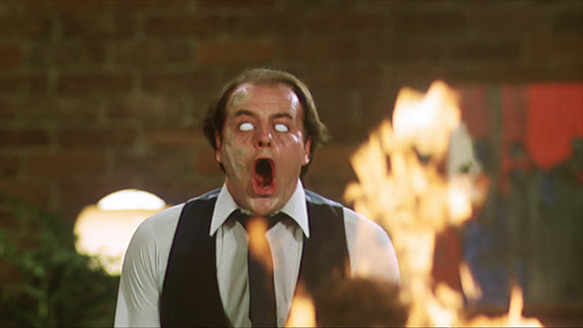
In his own words a movie that is “very much about heads,” Scanners solidified David Cronenberg’s burgeoning international reputation as an auteur out to literally blow minds. Equal parts horror movie and sci-fi picture, Scanners stars Michael Ironside, Stephen Lack, Patrick McGoohan, and Jennifer O’Neill in a frequently goofy, strangely abstract, and visually rich conspiracy thriller about powerful telepaths (“scanners”) in the employ of ConSec, a private security firm with dubious ideas.
Cronenberg’s first fully politicized project, placing military-industrial ideas under a messy microscope, Scanners also started something of a franchise, spawning sequels and a series of spin-offs––though none of these had any involvement with Cronenberg. An essential early work, Scanners also got the Criterion treatment in 2012, much to the delight of the director’s fans.
7. Kamikaze 1989 (1982)
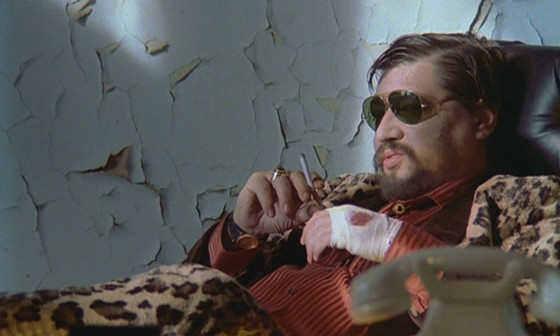
This “neon-noir” is a West German cyberpunk thriller overrun with 1980s aesthetics courtesy of co-writer and director Wolf Gremm, and based off Per Wahlöö’s outrageous 1964 novel, “Murder on the Thirty-First Floor.”
One of Kamikaze ‘89’s biggest coups is that it features the late, great Rainer Werner Fassbinder in his final screen role––he tragically died of a drug overdose a month before the film’s release––as Police Lieutenant Jansen, a detective in leopard-print duds who’s on the trail of a recent string of deadly bombings that are amounting to a massive corporate media conspiracy.
When not bowling or delighting himself at the police disco, Jansen finds life in the future of 1989 to be one dominated by reality TV, constant surveillance, and distrusting, furtive glances from doubtful factions, and danger at nearly every turn.
Gremm employs RWF’s longtime cinematographer Xaver Schwarzenberger, as well as Brigitte Mira in a memorable minor role as the Human Resources Director, making this an authentic farewell from Fassbinder that’s also a real hoot.
Kamikaze ‘89 also scores bonus cool points for having a synth-soaked OST courtesy of Edgar Froese (Tangerine Dream), making this one of the strangest and most exalted of underground films. This one really is something else.
6. Mission to Mars (2000)
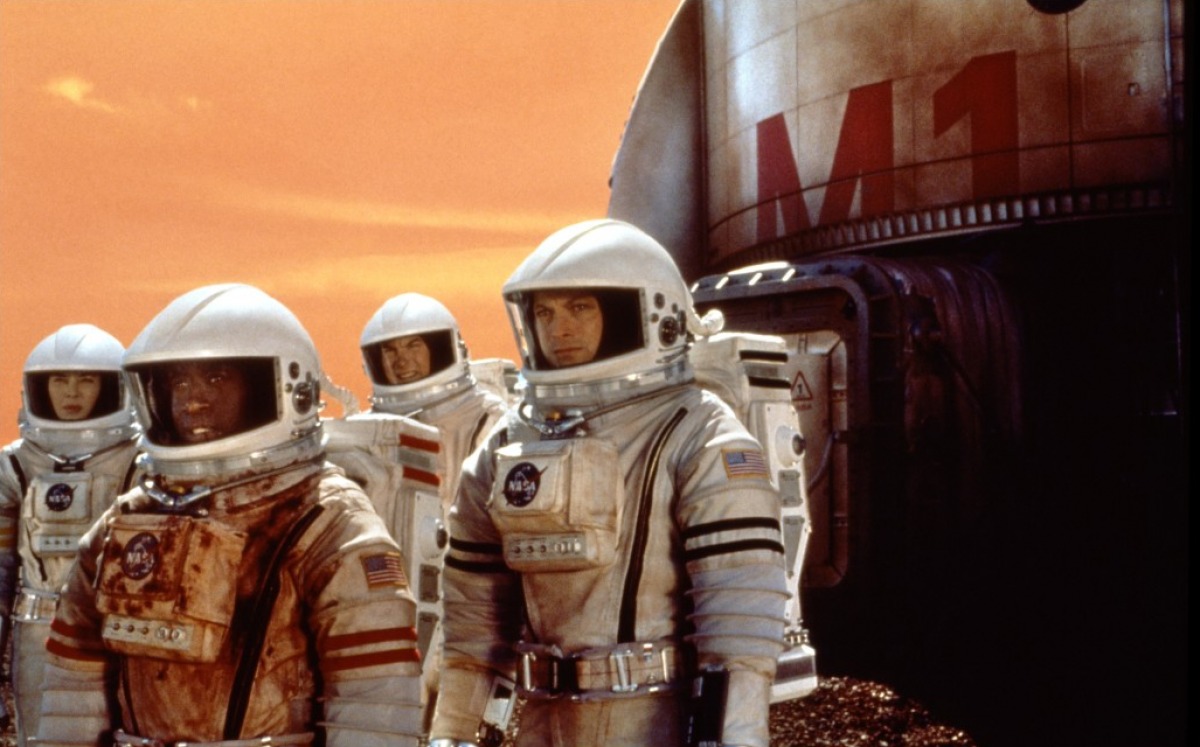
A challenging project for Brian De Palma that also, sadly, became synonymous with the term “box office poison” back in 2000 when it came out, the film also saw a lot of unsavory artistic compromises foisted upon him from the studio, including a problematic script he could do very little about. The film also marked De Palma’s last studio production in Hollywood as a result, and he hasn’t looked back since.
Though for all the negative reviews that Mission to Mars accrued, it wasn’t without its devotees (particularly in France where his films have always been well received) such as the NY Daily News scribe Michael Wilmington who declared it as “…one of the most gorgeous science-fiction movies ever––and probably also one of the most realistic in detail and scientific extrapolation.”
Set in the year 2020, the first manned mission to Mars takes a terrible turn when three crew members get killed and a fourth (Don Cheadle) is left stranded and without means to contact Mission Control. Enter a rescue sortie headed by Commander Woody Blake (Tim Robbins), Co-Commander Jim McConnell (Gary Sinise), and also Terri Fisher (Connie Nielsen) and an irritating turn from Jerry O’Connell as Phil Ohlmyer.
As they search for survivors they uncover some startling secrets and, inevitably, alien intelligence. Certainly an inconsistent undertaking, Mission to Mars, while self-conscious and frequently flimsy, still holds some inspired sequence and some dynamic tracking shots. For the technical aspects of the film, it’s worth watching, but beyond that it’s mostly just salty popcorn provisions.